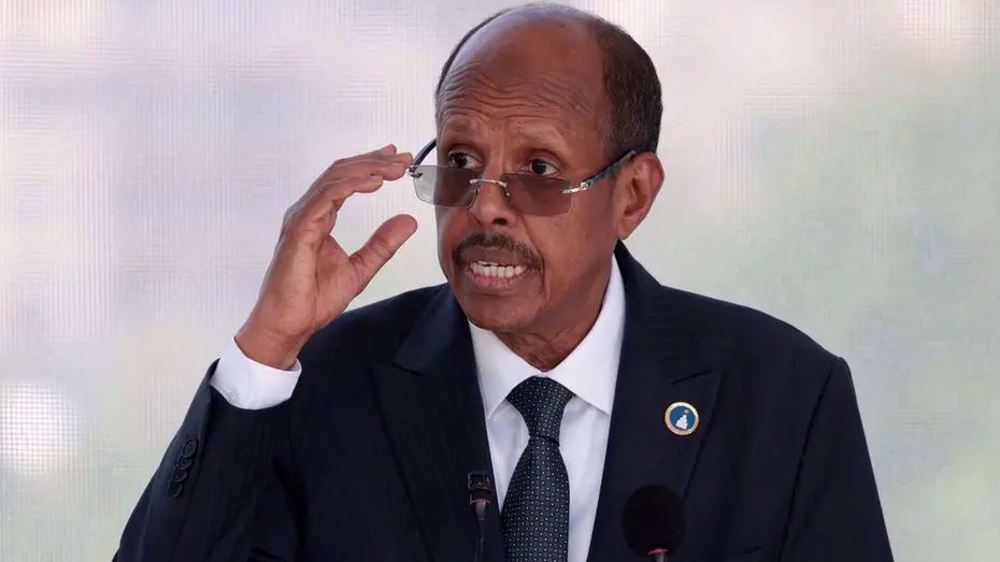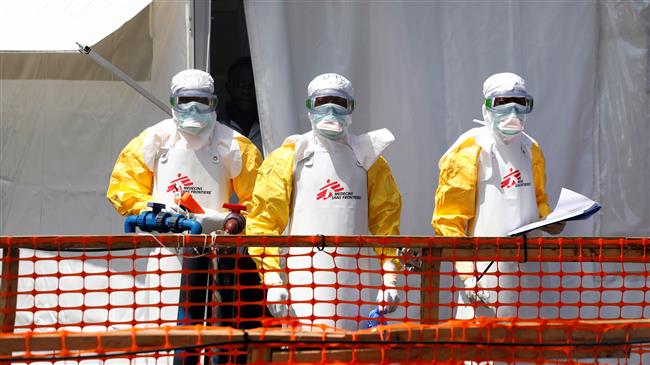Tanzania not sharing information on suspected Ebola cases: WHO
The World Health Organization (WHO) has accused Tanzania of failing to provide information on suspected cases of Ebola in the country, potentially hindering efforts to curb the spread of the deadly virus.
East African nations have been on high alert over an outbreak of Ebola in the Democratic Republic of the Congo, which has left 2,103 people dead. Four people were diagnosed with the virus in Uganda and later died.
The WHO said it had learned on September 10 of a suspected case of the disease in Tanzania's port city of Dar es Salaam, and information emerged that this patient's contacts had been quarantined, and that the person had tested positive for Ebola.
Two other suspected cases were also unofficially reported.
"Despite several requests, WHO did not receive further details of any of these cases from Tanzanian authorities," the organization said in a statement issued Saturday.
On September 14, Tanzanian authorities officially reported there was no Ebola in the country, but declined "secondary confirmation testing" at a WHO center, the global body said.

Then on Thursday, the WHO was made aware that a contact of the initial patient was sick and in hospital.
"To date, the clinical details and the results of the investigation, including laboratory tests performed for differential diagnosis of these patients, have not been shared with WHO."
'Very high risk'
The lack of information received by WHO meant it cannot determine the cause of the illness, it said.
"The limited available official information from Tanzanian authorities represents a challenge for assessing the risk posed by this event."
The WHO determined that because the initial patient traveled widely in the country and due to uncertainty around the cases, the lack of information and the fact that, if confirmed, it would be the first-ever outbreak of Ebola in the country, "the risk was assessed as very high at national level."
"At this stage, WHO is not aware of signs of a widespread transmission of any illness related to these cases, however investigations, including with the support of WHO Collaborating Centers, should continue to reach a diagnosis and further inform the risk assessment," said the statement.
They also warned of a high risk for the region.
The ongoing Ebola outbreak is the second-worst in history after more than 11,000 people died in Guinea, Sierra Leone, and Liberia between 2014 and 2016.
But the containment efforts have been hindered from the start by conflict in the eastern DRC, as well as attacks on medical teams tackling the hemorrhagic fever amid resistance within some communities to preventative measures, care facilities, and safe burials.
(Source: AFP)
US-allied fuel tanker attacked by Iran still burning in Strait of Hormuz: IRGC
Attacks on hospitals, schools ‘strike at life itself’: Pezeshkian
Iran’s attacks on US bases ‘legitimate’ response to source of aggression: Araghchi
IRGC targets US intelligence centers, military depots in 11th wave of attacks
US-Israeli attacks damage 5 hospitals, medical centers in Iran: MP
Unlike US, Iran prepared for a long war: Security chief
Missile sirens will never stop in Israeli-occupied territories, Iran warns
Leader’s martyrdom will drive Iran to greater dignity and victory: Senior cleric















 This makes it easy to access the Press TV website
This makes it easy to access the Press TV website